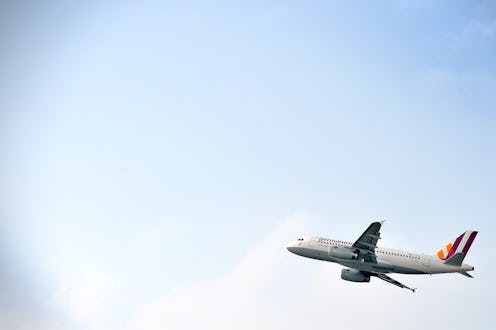News
Who Was The Germanwings Pilot?
Questions abounded on Tuesday after the horrific crash of a Germanwings A320 Airbus heading from Barcelona, Spain to Düsseldorf, Germany, which killed all 150 passengers and crew on board. Among the prevailing questions was the mystery of the pilot — who was in the cockpit, and what stopped them from sending the standard distress call? At a press conference on Tuesday, at least a few of those inquiries were addressed: the Flight 4U 9525 pilot had over 10 years of experience with both Lufthansa and Germanwings and had logged over 6,000 hours with the A320 model — but the revelation only raised more questions. (Update: At a press conference Thursday, it was revealed co-pilot Andreas Lubitz had deliberately crashed the plane while the plane's primary pilot was locked out of the cockpit, according to French authorities.)
According to aviation officials, there was a stunning ten minutes of radio silence between the last transmission to air traffic controllers and the fatal descent into the French Alps outside of Méolans-Revel. Later, it was revealed by French authorities that Lubitz had calmly taken down the plane while avoiding repeated requests from ground control to communicate; the main pilot had been locked out of the cockpit at the time.
"Air-traffic control made multiple attempts and there was always no response," said the SNCTA union secretary general Roger Rousseau in a statement on Tuesday. "There was no distress call from the plane. No mayday call, no squawk from the transponder—nothing."
Until the black box containing audio excerpts was found Wednesday, the lack of communication had left a serious dent in the records and further complicated the investigation into the cause behind the crash itself.
On Tuesday, a Germanwings spokesperson confirmed to Bustle that it had cancelled several flights after concern from employees. "There are crews that don't want to fly today after the news of the crash of an airplane with 144 passengers and six crew members," indicated the spokesperson. "We have understanding for this," the spokesperson said, confirming earlier statements by CEO Thomas Winkelmann.
Since the initial crash, investigators have been able to recover at least a few key pieces of evidence. Analysts agreed that the most important discovery in this specific crash would most likely be the cockpit voice recorder. As it relays the final moments and dialogue of Flight 9525's pilot and co-pilot — crucial in a case like this one, as there is little to go on mechanically or otherwise — the cockpit recorder was vital to solving the mystery behind the heartbreaking loss.
"The cockpit voice recorder is going to record everything the pilots are saying ... the communication from the cabin to the cockpit, [and] vice versa, and air traffic control," said CNN aviation analyst and former Boeing 777 pilot Les Abend in an interview Tuesday. "That's something I think would be very interesting to know about — what kind of communication took place up until the time of the last transmission that they made — what's going on, what's the tone of the pilot's voice? It's going to be very interesting."
Images: Getty Images (2)
